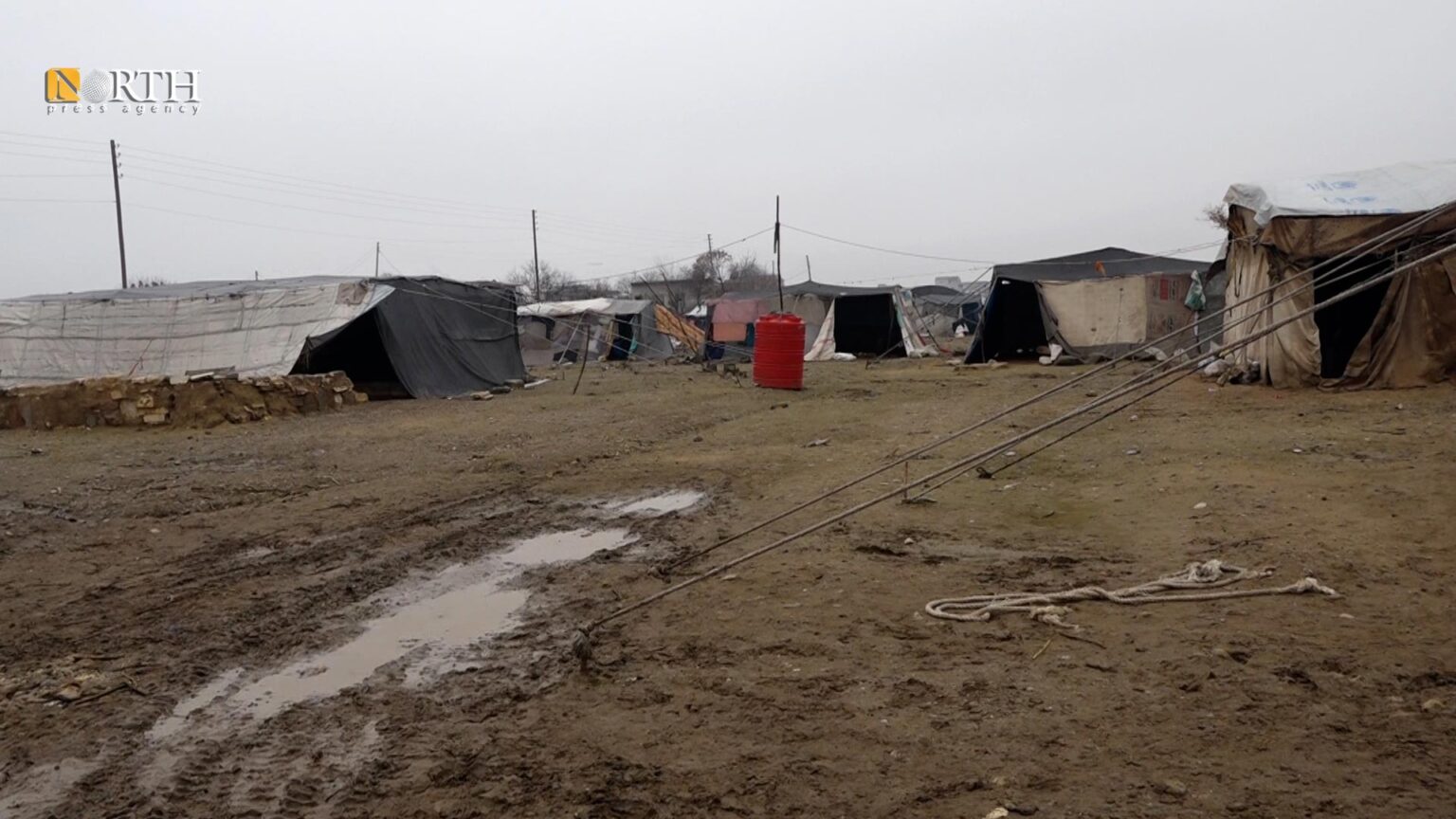RAQQA, Syria (North Press) – Hamoud al-Khalaf, 48, can do nothing but watch as his family members struggle to eke out a living in their torn tent. They ended up here as a result of the war that has ravaged Syria throughout the past decade.
Al-Khalaf is classified as an IDP. He lives in the al-Yunani makeshift IDP camp, only a kilometer south of Raqqa city, northern Syria. He says that they have received no aid since they were admitted to the camp.
IDPs in the camps of North and East Syria endure harsh living conditions amid lack of aid and a bitter winter. They live in derelict tents that cannot shield them from the chilly winter winds.
Al-Khalaf, who is from al-Rasafa, southwest Raqqa, is the head of a 13-member household. He has no job to support his family.
His case is far from exceptional. Many IDPs at al-Yunani face the same prospects. “We have already been finished off,” he said, referring to the dire economic situation.

Al-Yunani is only one of roughly 58 makeshift camps whose residents have yet to receive any humanitarian aid. The closure of al-Yaroubiya, a key humanitarian border crossing for the region, further aggravates their situation. The Autonomous Administration of North and East Syria (AANES) has repeatedly called for the border crossing to be re-opened and that the camps be provided with humanitarian support. So far, its demands have fallen on deaf ears.
For his part, al-Khalaf calls on all involved parties to re-open the border crossings and to allow aid in, hoping to receive a share.
On January 9, the UN Security Council unanimously agreed to extend the cross-border aid mandate between Turkey and opposition-held Idlib for another six months. No such mandate exists for al-Yaroubiya, which has been sealed since 2020, when UN Security Council vetoes by China and Russia permanently closed the crossing.
Zahra al-Hussein, 60, disagreed. The al-Yunani resident said that they were suffering long before al-Yaroubiya was closed. They never received any aid, even when it was open.
“We are IDPs and no one cares about us; our children are cold and hungry,” she complained.
Al-Hussein is determined to earn a living for her family, even though she is an elderly woman. “Life is painful,” she said. Her daily earning are barely enough to buy a kilogram of sugar.
There are 280 families living in al-Yunani camp. They hail from al-Rasafa, Madan and al-Zamlah, all of which are under the control of Syrian government forces. According to recent figures, 1.120 women, 840 children, and nine persons with disabilities live in the camp.
Ghadeer al-Ahmad complained about the price of medicine. The 52-year-old said that she had to borrow money from her neighbors in order to buy the medicine her sons needed when they became ill, but “the amount was too much for us”. She was unable to afford it.
Al-Ahmad said that they need to receive aid, including tents, food baskets, medicine and other basic necessities, as they are unable to afford them themselves.
Al-Yunani’s residents continue to appeal for help. But they have yet to receive an answer.

